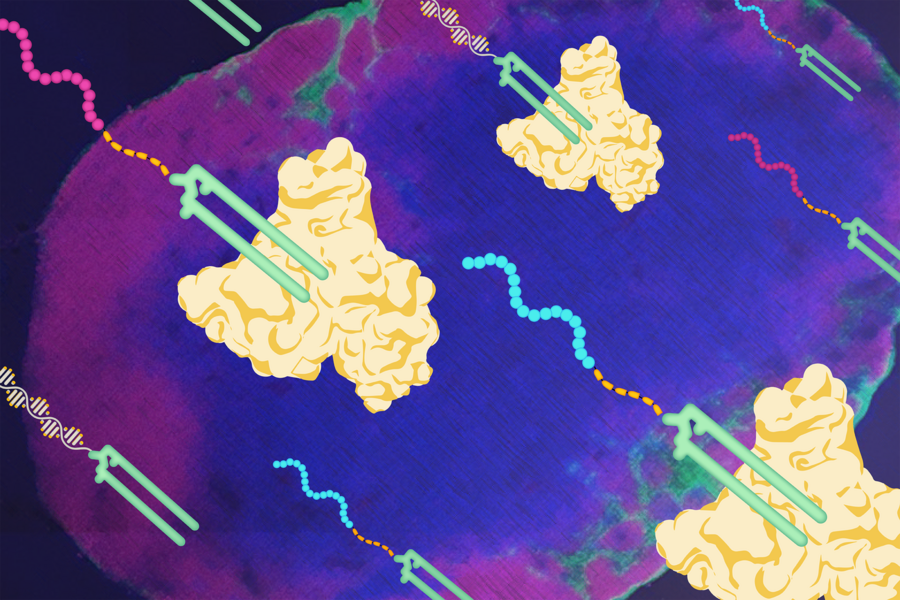Therapeutic cancer vaccines are an appealing strategy for treating malignancies. In theory, when a patient is injected with peptide antigens — protein fragments from mutant proteins only expressed by tumor cells — T cells learn to recognize and attack cancer cells expressing the corresponding protein. By teaching the patient’s own immune system to attack cancer cells, these vaccines ideally would not only eliminate tumors but prevent them from recurring.
In practice, however, effective cancer vaccines have not materialized, despite decades of research.
“There has been a lot of work to make cancer vaccines more effective,” says Darrell Irvine, a professor in the MIT departments of Biological Engineering and Materials Science and Engineering and a member of the Koch Institute for Integrative Cancer Research at MIT. “But even in mouse and other models, they typically only provoke a weak immune response. And once those vaccines are tested in a clinical setting, their efficacy evaporates.”

